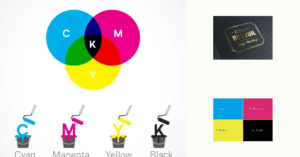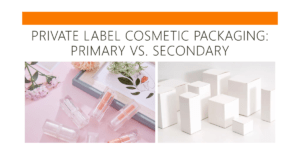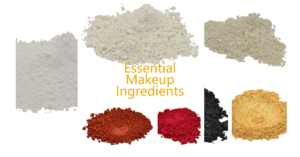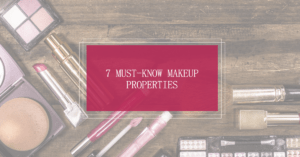Table 1: Article Outline
| Heading | Subheading |
|---|---|
| H1 | The Importance of Quality Control in Private Label Cosmetics |
| H2 | Introduction to Private Label Cosmetics |
| H3 | Understanding Quality Control |
| H4 | The Role of Quality Control in Private Label Cosmetics |
| H2 | Benefits of Quality Control in Private Label Cosmetics |
| H3 | Ensuring Product Safety |
| H3 | Building Consumer Trust |
| H3 | Differentiating Your Brand |
| H3 | Compliance with Regulations |
| H2 | Key Quality Control Processes for Private Label Cosmetics |
| H3 | Raw Material Inspection |
| H3 | In-process Control |
| H3 | Finished Product Inspection |
| H3 | Packaging Inspection |
| H2 | How to Implement Quality Control in Your Private Label Cosmetics Business |
| H3 | Establishing Standards and Procedures |
| H3 | Training Your Staff |
| H3 | Continuous Improvement |
| H2 | Conclusion |
Table 2: Article
The Importance of Quality Control in Private Label Cosmetics
Introduction to Private Label Cosmetics
Private label cosmetics is a booming industry, as more entrepreneurs and businesses are drawn to the idea of creating their unique cosmetic products. These businesses have the opportunity to develop their brand, formulate innovative products, and capitalize on current market trends. However, there’s one crucial aspect that cannot be overlooked – quality control. Without proper quality control measures in place, the success and reputation of a private label cosmetics business can be at risk.
Understanding Quality Control
Quality control refers to the systematic process of ensuring that products meet a predefined set of standards and specifications. It involves various activities and checks carried out throughout the production process, from sourcing raw materials to packaging finished products. The objective of quality control is to identify and address any deviations or issues that might compromise product quality, safety, or regulatory compliance.
The Role of Quality Control in Private Label Cosmetics
In the private label cosmetics industry, quality control is essential for several reasons. First and foremost, it helps ensure that the products are safe and effective for consumer use. Additionally, it helps build consumer trust, differentiate your brand from competitors, and comply with industry regulations.
Benefits of Quality Control in Private Label Cosmetics
- Ensuring Product SafetyQuality control helps identify and mitigate potential risks associated with product safety. This includes detecting harmful substances, contaminants, or allergens that could pose a threat to consumer health. By implementing thorough quality control processes, private label cosmetics businesses can prevent product recalls, legal issues, and negative publicity.
- Building Consumer TrustConsumers expect high-quality products from the cosmetics industry. By maintaining strict quality control standards, private label cosmetics companies can assure customers that their products are safe, effective, and of the highest quality. This trust can lead to customer loyalty, positive word-of-mouth, and increased sales.
- Differentiating Your BrandIn a competitive market, private label cosmetics companies need to differentiate themselves from their competitors. One way to achieve this is by emphasizing product quality. By maintaining rigorous quality control standards and consistently delivering high-quality products, businesses can set themselves apart and gain a competitive edge.
- Compliance with RegulationsThe cosmetics industry is subject to various regulations and standards, such as those set by the FDA or other governing bodies. Quality control plays a vital role in ensuring compliance with these regulations, helping businesses avoid fines, legal issues, and damage to their reputation.
Key Quality Control Processes for Private Label Cosmetics
- **Raw Material Inspection**
The quality of raw materials is crucial in producing high-quality private label cosmetics. Inspecting incoming raw materials ensures that they meet the required specifications and are free from contaminants, ensuring product safety and consistency. Establishing a strong relationship with reputable suppliers and implementing strict quality control procedures can help guarantee the quality of the raw materials used in your products.
- In-process ControlMonitoring and controlling the production process is essential in maintaining product quality. In-process control involves regular inspections, tests, and adjustments throughout the manufacturing process to ensure consistency and adherence to the established standards. This proactive approach helps identify and address potential issues before they impact the final product.
- Finished Product InspectionBefore the products are released to the market, a thorough inspection of the finished goods is necessary. This includes testing for safety, efficacy, and compliance with industry regulations. By conducting a comprehensive finished product inspection, private label cosmetics businesses can identify any non-conforming products and take corrective action before they reach the consumer.
- Packaging InspectionPackaging plays a significant role in preserving product quality and ensuring consumer satisfaction. A packaging inspection process should assess the materials, functionality, and aesthetics of the packaging to ensure it meets the required standards and provides adequate protection for the product.
How to Implement Quality Control in Your Private Label Cosmetics Business
- Establishing Standards and ProceduresDevelop and document clear quality control standards and procedures that align with industry regulations and best practices. These guidelines should outline the expectations for each stage of the production process, from raw material inspection to finished product testing.
- Training Your StaffA successful quality control program relies on a well-trained workforce. Invest in training your staff on the established quality control procedures, ensuring they understand their responsibilities and the importance of maintaining product quality.
- Continuous ImprovementRegularly review and update your quality control processes to ensure they remain effective and relevant. Encourage a culture of continuous improvement, where employees feel empowered to identify and address potential issues and suggest improvements to the existing procedures.
Conclusion
Quality control is essential in the private label cosmetics industry, as it ensures product safety, builds consumer trust, differentiates your brand, and helps maintain compliance with regulations. By implementing robust quality control processes, businesses can create high-quality products that stand out in the competitive market and drive long-term success.
FAQs
- What is quality control in private label cosmetics?Quality control refers to the systematic process of ensuring that products meet a predefined set of standards and specifications. In the private label cosmetics industry, quality control helps ensure product safety, consumer trust, brand differentiation, and regulatory compliance.
- Why is quality control important in private label cosmetics?Quality control is essential in private label cosmetics because it ensures product safety, builds consumer trust, differentiates your brand, and helps maintain compliance with industry regulations.
- What are the key quality control processes for private label cosmetics?The key quality control processes for private label cosmetics include raw material inspection, in-process control, finished product inspection, and packaging inspection.
- How can I implement quality control in my private label cosmetics business?To implement quality control in your private label cosmetics business, establish clear standards and procedures, train your staff on these procedures, and foster a culture of continuous improvement.
- How does quality control help differentiate my private label cosmetics brand?Quality control helps differentiate your private label cosmetics brand by emphasizing product quality and consistently delivering high-quality products that meet or exceed customer expectations.






